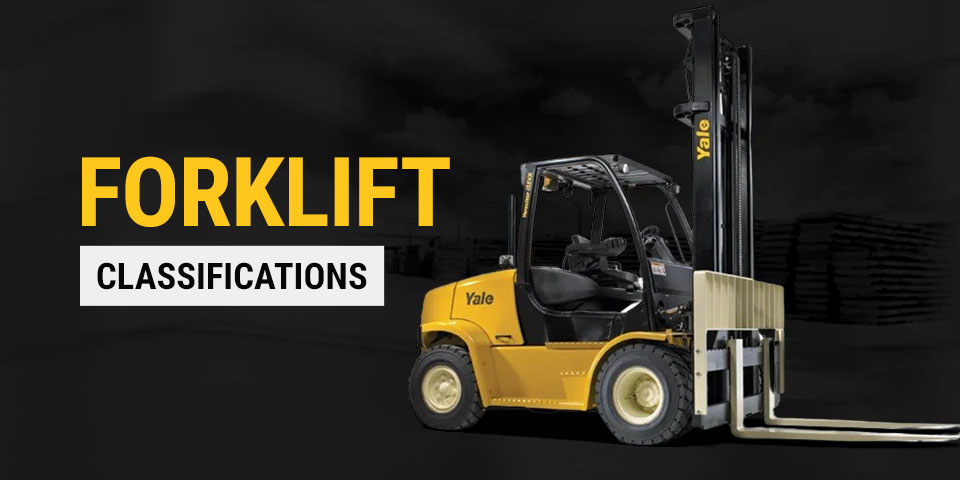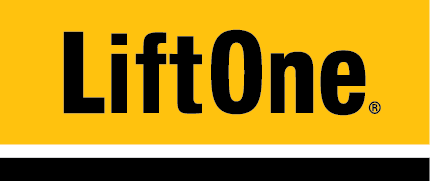Forklift Classifications Guide

Does your business depend on forklifts to perform various material handling tasks in a warehouse, manufacturing plant or another facility? You probably know there are numerous forklift types and sizes on the market, so it's important to select the right truck for your application.
What Are the Forklift Types and Sizes?
The description of the forklift types encompasses their function and power sources, which can be gas, diesel or electric. The specific gas model versions are gasoline, compressed natural gas (CNG) and liquified petroleum gas (LPG). Electric forklifts run on specially designed industrial batteries, like lithium-ion or lead acid batteries.
Gas-powered equipment is beneficial to some because of its lower upfront costs, consistent power delivery and versatility. However, because these models contain fuel-burning internal combustion engines that emit fumes, they're better suited for outdoor use. Electric versions can be used indoors due to their quiet operation and lack of emissions, although the battery requires charging, so your operation’s shifts need to be considered.
Forklift sizes vary widely, tailored to suit varying aisle widths and lift capacities to meet your specific needs. For example, walkie stackers and order pickers are smaller walk-behind models used for tasks like order selection and maneuvering pallets in a warehouse environment. A reach truck can fit in narrow aisles with options to reach varying heights in warehouses with double-deep storage. Industrial forklifts are high-capacity equipment that can handle heavier loads, and rough terrain units are ideal for uneven outdoor surfaces.
Use the Forklift Size Chart to Help You Select the Right Equipment
The Occupational Safety and Health Administration (OSHA) has developed a forklift size guide that categorizes the equipment into different classes based on fuel source and intended use. Forklift operators must attain OSHA certification for the classes of equipment they use while on the job.
Class 1 — Electric Motor Rider Trucks
This forklift classification pertains to ride-on electric models that typically perform tasks like transporting pallets and loading and unloading trailers in an indoor environment. Industries that use this equipment include food storage, retail and general warehousing. They tend to be more compact and use the battery as a counterweight. Examples of specific models include three-wheel electric trucks and counterbalanced rider vehicles with cushion or pneumatic tires.
Class 2 — Electric Motor Narrow Aisle Trucks
A narrow aisle forklift can travel and maneuver in spaces less than half the width of standard warehouse aisles. They perform well in smaller warehouses that have a high storage density. Examples of lifts that fit this classification include battery-powered turret trucks, high-lift straddle trucks, reach-type outriggers and side loaders.
Class 3 — Electric Motor Hand Trucks or Hand/Rider Trucks
These electric forklifts are designed for working in confined areas and at lower heights. They're adept at moving materials around an indoor warehouse and lighter loading and unloading activities. They also perform well when unloading delivery trucks over shorter distances. Examples include low-lift platform and low-lift walkie pallet trucks, reach-type outriggers, and high-lift counterbalanced lift trucks.
Class 4 — Internal Combustion Engine With Cushion Tires
Cushion tire forklifts perform well on smooth, hard surfaces. Most of these models are built lower to the ground, making them a solid choice for well-ventilated indoor environments. These vehicles also have a tight turning radius, a positive attribute when working in confined spaces.
Class 5 — Internal Combustion Engine With Pneumatic Tires
These trucks are ideally suited for indoor or outdoor settings and rougher surfaces, although warehouse environments represent the most typical applications. Their greater capacity enables them to accommodate light single-pallet loads and some container loads. Available fuel types include diesel, LPG, CNG and gasoline.
LiftOne Has the Right Forklift for Your Needs
LiftOne is a full-service material handling dealership offering a wide selection of high-quality new, used and rental forklifts from leading manufacturers across the Southeast. We have the experience and expertise to help you determine the appropriate equipment classification for your applications.
Our support services include operator training to ensure your teams comply with the stringent OSHA requirements for operating a forklift, regardless of its classification. We also offer train-the-trainer programs that allow you to provide on-site instruction with your in-house personnel.
Contact Us to Learn More
Do you have questions about the various forklift sizes, types and classifications? The knowledgeable material handling professionals at LiftOne have the answers. Take the next step and call us at 855.543.8663 to speak to a representative or contact us online to request additional information today.










